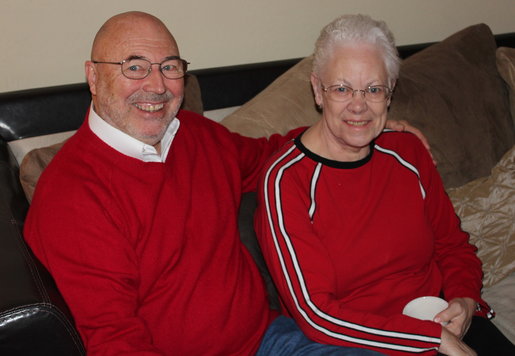
By Gerald Wood
Selected from Musings of a Purposeful Mind by Gerald Lloyd Wood © 2018. All rights reserved.
For over 54 years, I have lived magic moments many times with a special woman. That is to say, “Life has been very good.” Her parents coincidentally celebrated 54 years too and my parents 62 years before my father passed. Love has been the common denominator in all three; but, unions lasting a long time like ours need more than love to hold them together. Certainly, our successful marriages were built upon a complex foundation of commitment, shared values, respect, affection, teamwork, children, championing each other and more. Sticking together is a miracle of sorts when considering the pressures, temptations, risks, and challenges that couples face in committed relationships. A good marriage is not an illusion; but, it is nonetheless…magic.
Sadly, our magic is slipping away. As a full-time caregiver for more than eight years for my wife, I have witnessed firsthand how her Alzheimer’s disease has created stresses upon our marriage for which we were not prepared. The physical and emotional separation has been devastating. Although I still know her, she has not known me as her husband for longer than I wish to say. Adding to our difficulties was the inability to communicate when aphasia took over her speech. For those reasons, and a diagnosis of cancer, she was unavoidably placed into institutional care. Hospice is now in charge; but, her safety and comfort are still my highest priorities as her loving advocate. Without fail, my devotion is something upon which she may always depend.
Alzheimer’s destroyed the vibrant and productive lives we once shared, essentially, altering our relationship. She is here but gone, physically present while being psychologically absent at the same time. These changes created a stunning sense of loss for me about three years ago. I didn’t understand what was happening. Feelings of desperation and frustration about our hopelessness deeply troubled me. I felt like she had passed. When I came to understand that unresolved grief is real in dementia, because the loss is real, I began to cope more successfully. In dementia, someone can be here and gone at the same time. Furthermore, her physical presence each day made it difficult to accept our new reality, that future plans would never be realized. Thus, I struggled through one of my lowest points with her.
Then, I read a book with ideas that helped me to shake off my sadness and move forward. Other caregivers who are looking for answers must do the same to save themselves from stress that could be lethal. In cases of dementia where there can be no resolution of ambiguity, caregivers are in greater danger. Statistics bear this out. This book to which I refer is titled, Loving Someone Who Has Dementia, How to Find Hope While Coping with Stress and Grief, written by Pauline Boss, PhD, Professor Emeritus, at the University of Minnesota. She introduces readers to a treasure trove of concepts that have immeasurably helped put my life back on track including “ambiguous loss,” “complicated grief,” the “good enough relationship,” “delicious ambiguity,” and “the myth of closure,” to mention a few. This book taught me ways to take personal responsibility for my own health. I learned that self-study, outside support groups and regular in-home respite for caregivers is critically important because this tough job cannot be done alone. For those reasons, I recommend her book as a resource in similar circumstances.
Caregivers must also live in the present as normally as possible to prevent isolation, debilitating sadness or clinical depression. Thus, it is essential to remain socially active within a network of friends, maintain family rituals, pursue hobbies and establish what the author described as a “psychological family” when one’s biological family doesn’t exist, lives too far away or chooses not to help. Another coping strategy recommended by Dr. Boss is for caregivers to broaden their identities to reduce chronic stress. She asks the following questions, “Who are you now that dementia has entered your relationship? Are you someone’s child if your parent can’t remember your name? Are you still married if your spouse no longer knows you? Who is your family now?” She advises, “The goal is to revise your identity to fit the ambiguity.” Thus, finding one’s way forward is not easy because values, age, health, life experience and individual circumstances differ. Indeed, no two cases are the same.
In conclusion, Dr. Boss writes, “My recommendations: find people to be with who support you; minimize contact with those who don’t and don’t feel guilty.” For all caregivers like me, may the magic continue out of darkness into the light of a new day?
Click here to learn more about how Duet can help family caregivers.